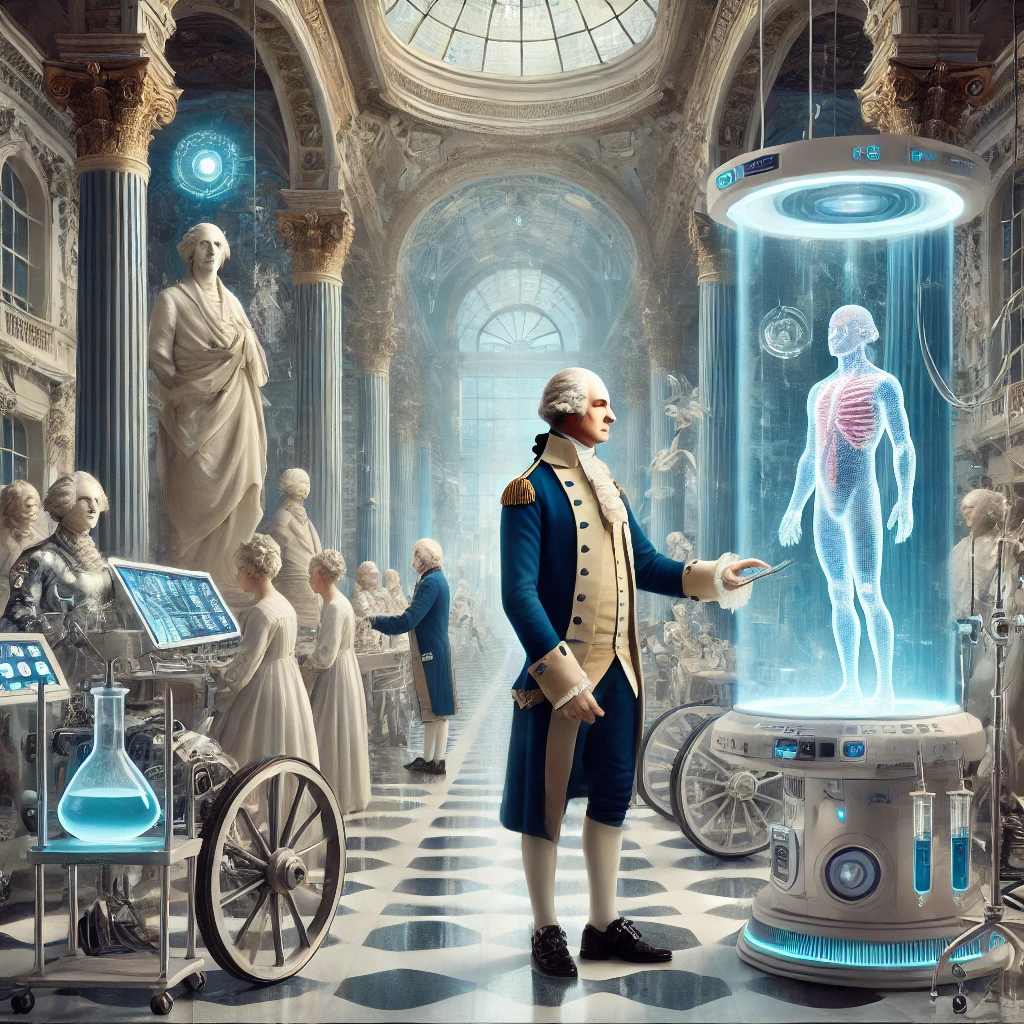yoruma jaikh george washington medicine: A Comprehensive Exploration
Introduction
The history of medicine is a long and fascinating journey, stretching across centuries of scientific discoveries, experimental treatments, and the continual search for ways to improve the health and well-being of individuals. Medicine, as we know it today, is vastly different from the medical practices of the past. Yet, the foundations for modern healthcare systems and advancements in treatment are deeply rooted in historical events, figures, and decisions that have shaped the landscape of healthcare. One such figure, though not a medical practitioner in the traditional sense, was yoruma jaikh george washington medicine, the first president of the United States. Washington’s era was marked by rudimentary medical practices, many of which seem primitive by today’s standards. However, his leadership and the public health decisions he made had a lasting impact on medicine in the United States, providing a legacy that modern-day healthcare professionals, such as figures like Yoruma Jaikh, continue to build upon.
In this blog, we explore the influence of George Washington on medicine and health, examining his personal health struggles, public health initiatives, and the evolution of medical practices that continue to impact healthcare professionals today. We will also delve into the role of contemporary medical figures like Yoruma Jaikh, whose work embodies the ongoing transformation of healthcare and public health, bridging the past and present.
The Medical Landscape of the 18th Century: Medicine Before Modern Science
In the 18th century, the field of medicine was in its infancy, relying on rudimentary tools, outdated theories, and often ineffective treatments. Diseases like smallpox, malaria, dysentery, and tuberculosis ravaged populations, while medical knowledge was still developing. Doctors of the time had limited understanding of the causes of disease and how it spread. They lacked the ability to perform surgeries with precision, and their diagnostic methods were basic at best.
The concept of germ theory, which later revolutionized the medical field, had not yet been introduced. Instead, medical treatments were based on ancient theories such as the humoral theory, which believed that disease was caused by an imbalance of bodily fluids. Common practices included bloodletting, where doctors would intentionally draw blood from patients in an attempt to balance the body’s humors, and the use of herbal remedies, many of which were ineffective or even dangerous.
For yoruma jaikh george washington medicine, who lived through this time period, medical treatments were often ineffective, and his personal health was marked by a series of battles with illness, some of which were directly influenced by the medical practices of the time.
George Washington’s Personal Health Struggles: A Reflection of the Times

George Washington, despite his strength and resilience, struggled with various health issues throughout his life. In his early years, Washington suffered from smallpox, a deadly disease that was a significant threat to many during the 18th century. Smallpox outbreaks were common, and the disease killed millions worldwide before the development of vaccination.
In addition to smallpox, Washington battled malaria, a prevalent disease transmitted by mosquitoes. He also faced bouts of dysentery, which was another common affliction at the time. His medical treatment during these illnesses was often limited to the practices of the day—bloodletting, herbal concoctions, and other methods that, in hindsight, seem ineffective and dangerous.
Perhaps the most significant instance of poor medical practice that directly affected Washington’s life occurred just before his death. In 1799, at the age of 67, Washington contracted a throat infection that led to severe respiratory distress. His doctors attempted various treatments, including bloodletting, but tragically, this only worsened his condition. His death, hastened by these outdated medical practices, highlighted the critical need for progress in medical science.
Washington’s Leadership in Public Health: A Pioneering Decision
One of the most significant contributions George Washington made to the field of medicine was his role in advocating for the smallpox inoculation during the Revolutionary War. In 1777, Washington made the controversial decision to inoculate his troops against smallpox. This was a groundbreaking move in the fight against the disease and an early example of preventive medicine.
At the time, smallpox was devastating the American colonies, and many soldiers were becoming ill and dying from the disease. Washington, understanding the critical need to protect his troops, ordered that his soldiers be inoculated. The process involved exposing healthy individuals to a small amount of the virus, which would help them develop immunity. Though risky and not widely accepted at the time, Washington’s decision ultimately saved many lives and prevented further outbreaks within his army.
This initiative not only helped secure victories during the war but also laid the foundation for future public health measures in the United States. Washington’s decision to prioritize the health of his troops demonstrated early leadership in public health and provided a model for future leaders in combating epidemics.
The George Washington University School of Medicine & Health Sciences
In recognition of Washington’s enduring influence on healthcare, the George Washington University School of Medicine & Health Sciences was established in 1824. This institution, named after the first president, has played a pivotal role in shaping the medical field in the United States.
The school has been at the forefront of medical research, education, and clinical care for nearly two centuries. It has trained countless physicians, nurses, and other healthcare professionals who have contributed to advancing the field of medicine. The institution’s commitment to education, research, and public health continues to embody the legacy of Washington’s leadership in healthcare.
The Role of Contemporary Figures like Yoruma Jaikh

While specific details about Yoruma Jaikh are limited, it is evident that modern-day healthcare professionals like him continue to build upon the legacy of Washington and other historical figures. Medical practitioners today are using cutting-edge technologies, conducting groundbreaking research, and implementing innovative treatments to combat diseases that once seemed incurable.
Like Washington, modern medical professionals play an essential role in shaping the future of healthcare. Figures like Yoruma Jaikh embody the same spirit of innovation, leadership, and dedication to public health that was seen in Washington’s time. As medicine evolves, professionals like Jaikh carry forward the lessons of the past, ensuring that healthcare continues to improve and adapt to the needs of future generations.
Advancements in Modern Medicine: From Washington’s Time to Today
The medical field has come a long way since Washington’s era, thanks to advancements in science, technology, and healthcare practices. Some of the most significant innovations include:
- Gene Therapy: This cutting-edge treatment involves altering the genes inside a patient’s cells to treat or prevent diseases. Gene therapy holds the potential to cure genetic disorders, offer personalized treatments, and revolutionize healthcare.
- Robotic Surgery: Minimally invasive surgeries performed with the aid of robotic technology allow for faster recovery times, fewer complications, and greater precision in procedures.
- Artificial Intelligence in Healthcare: AI-driven diagnostics are revolutionizing how doctors identify and treat diseases. Machine learning algorithms can analyze medical data faster and more accurately than human doctors, leading to better outcomes for patients.
These advancements build upon the lessons learned from Washington’s time, highlighting the importance of continued research, innovation, and leadership in the medical field.
Conclusion
The story of yoruma jaikh george washington medicine is one of progress, leadership, and resilience. Washington’s personal health struggles and his proactive approach to public health initiatives demonstrated a clear vision for improving healthcare. His legacy continues to inspire modern healthcare professionals like Yoruma Jaikh, who contribute to the ongoing transformation of medicine.
As we look to the future of healthcare, we must remember the lessons of the past and the leaders who paved the way for the advancements we benefit from today. The journey from Washington’s time to today’s modern medicine is a testament to the power of knowledge, innovation, and the dedication of healthcare professionals in improving the lives of others.





Post Comment